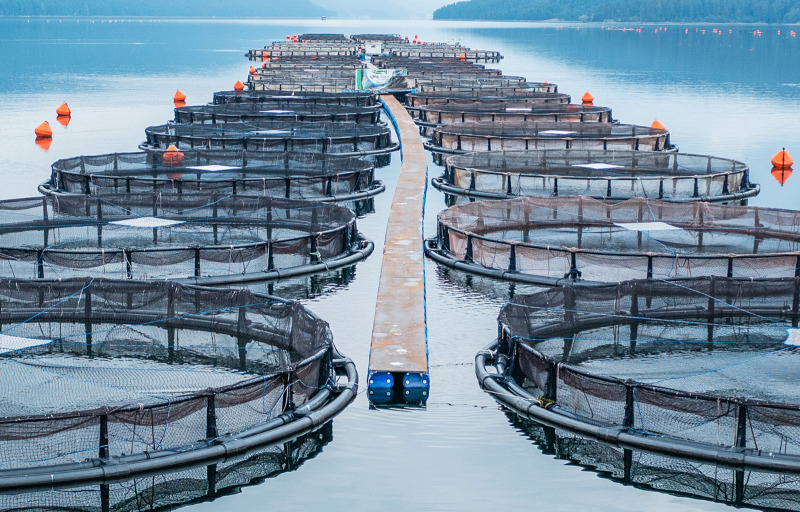CREDIT: ArtistGNDphotography / iStock
Around the world, the rapid expansion and growth in aquaculture—the farming of aquatic animals and plants—is underway. The scientific conversation has had difficulty keeping pace with the growth of the industry. To date, questions have focused namely on opportunities to expand aquaculture’s contribution to food systems, alongside questions of sustainability. These questions have predominantly been asked through a lens of instrumental value, and the answers have been optimistic: Previous studies have suggested aquaculture can relieve pressure on wild fish; “blue foods” provide protein to billions of people; and industry changes are reducing reliance on fishmeal and fish oil.
With this special issue, we sought to expand the view of aquaculture by inviting contributions from a number of topic area experts. These articles offer new ways of seeing the industry and its future, including research on aquaculture infrastructure detection using machine learning and the impacts of aquaculture on wild animals and animal welfare, as well as revisiting important questions about substitution effects, infectious diseases, and the systems of accounting for fishmeal and fish oil. We welcomed lines of inquiry and evidence that also considered the intrinsic value of the animals and ecosystems involved.
This collection of studies offers an important contribution to understanding this growing industry and will have policy implications in the US and beyond.



